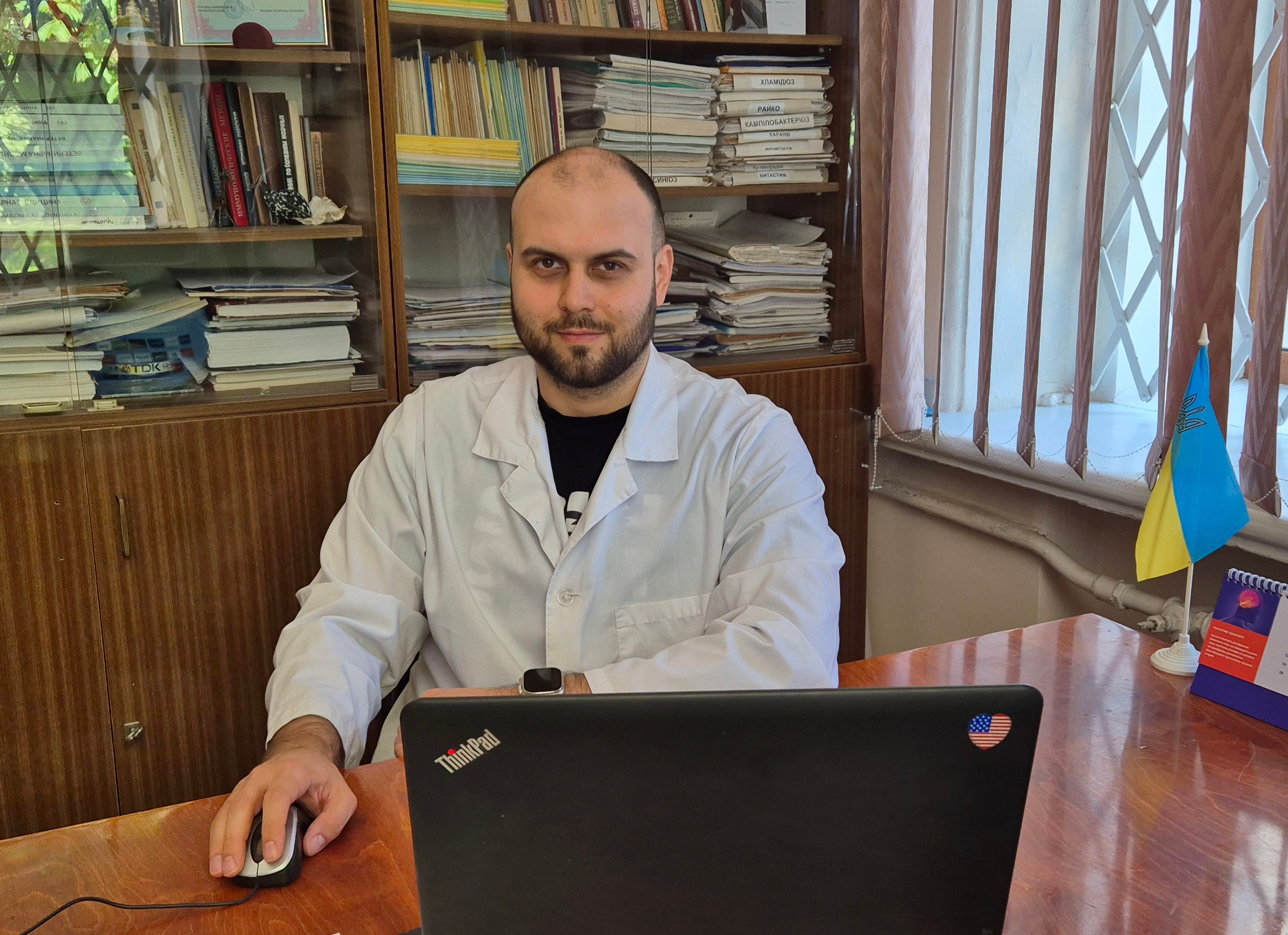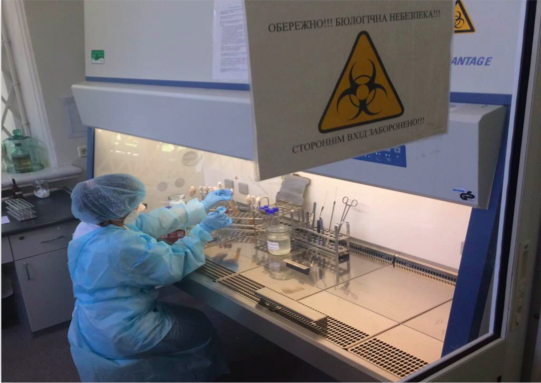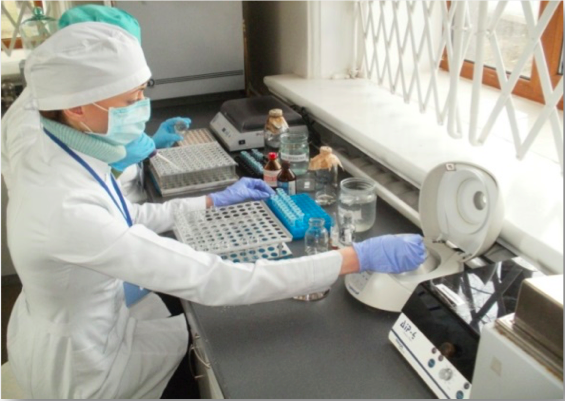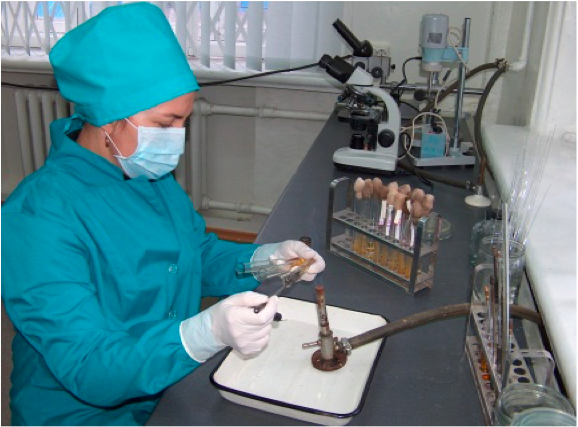LABORATORY FOR BRUCELLOSIS RESEARCH
Head of the Laboratory:
BILOYVAN Oleksandr Volodymyrovych,
Candidate of Veterinary Sciences
Phone: (057) 707-20-11
silverscreen91@gmail.com
The Brucellosis Research Laboratory was established in 1928. Throughout its entire period of operation, the main focus of the laboratory has been conducting epizootiological monitoring, developing, and implementing diagnostic tools and measures for the prevention and control of animal brucellosis in Ukraine. With the active participation of the laboratory staff, a brucellosis control system was developed and implemented, enabling the improvement of livestock health and ensuring stable safety against this dangerous disease across Ukraine.
The laboratory staff have developed the main regulatory and methodological documents used by specialists of the State Service of Ukraine for Food Safety and Consumer Protection (SSUFSCP) in the system of anti-epizootic measures against animal brucellosis. The laboratory team has also developed and implemented a wide range of diagnostic and preventive tools for brucellosis, infectious epididymitis in sheep, as well as diseases that need to be differentiated from brucellosis, namely yersiniosis, campylobacteriosis, and chlamydiosis in animals.
Research Directions:
- Study of the stability of biological properties of production strains of infectious disease pathogens, as well as epizootic and vaccine strains of Brucella, Campylobacter, Listeria, Chlamydia, and Yersinia stored in the bacterial culture collection;
- Maintenance of the collection of microbial strains;
- Epizootiological monitoring of livestock health regarding brucellosis and chlamydiosis in farm and domestic animals, including infectious epididymitis in sheep and enzootic abortion in ewes;
- Improvement of systems and tools for the diagnosis and control of brucellosis, infectious epididymitis in sheep, chlamydiosis, listeriosis, campylobacteriosis, and yersiniosis in animals.
Areas of Expertise: epizootiological examination, bacteriological and serological studies (brucellosis, infectious epididymitis in rams, yersiniosis, campylobacteriosis, chlamydiosis, listeriosis).
Main Developments of the Brucellosis Research Laboratory
Diagnostic Tools:
- Set of positive and negative control sera for RBP, RA, RZK (RTZK) (TU U 46.15.274);
- Set of components for serological diagnosis of infectious epididymitis in rams using RTZK (TU U 46.15.059);
- Dry complement from guinea pig (TU U 24.4-00497087-672);
- Hemolytic rabbit blood serum (TU U 24.4-00497087-671);
- National Standard of NSC “IECVM” Anti-Brucella abortus serum;
- Diagnostic ELISA test system “DIA-Brucella ab.-combi-V” (TU U24.4-24265186-699);
- Diagnostic ELISA test system “DIA-Brucella ab.-V” (TU U 24.4-24265186-659);
- Diagnostic ELISA test system “DIA-Brucella ab.-MILK” (TU U 24.4-24265186-674).
Means of Specific Prevention
- Inactivated emulsified bivalent vaccine against chlamydial and brucellosis infection (TU U 24.4-00497087-023);
- Inactivated emulsified vaccine against infectious epididymitis in rams (TU U 24.-00497087-021).
The laboratory is authorized to work with pathogens of the second pathogenicity group and is accredited according to DSTU ISO/IEC 17025:2006 standards (accreditation scopes: serological diagnostics – determination of antibodies to pathogens of brucellosis, infectious epididymitis in rams, chlamydiosis, campylobacteriosis, and yersiniosis in animals; bacteriological studies – isolation of microorganism cultures and determination of antibiotic sensitivity). Laboratory staff participate in annual proficiency testing for brucellosis and chlamydiosis in animals organized by reference laboratories of the International Epizootic Bureau.










